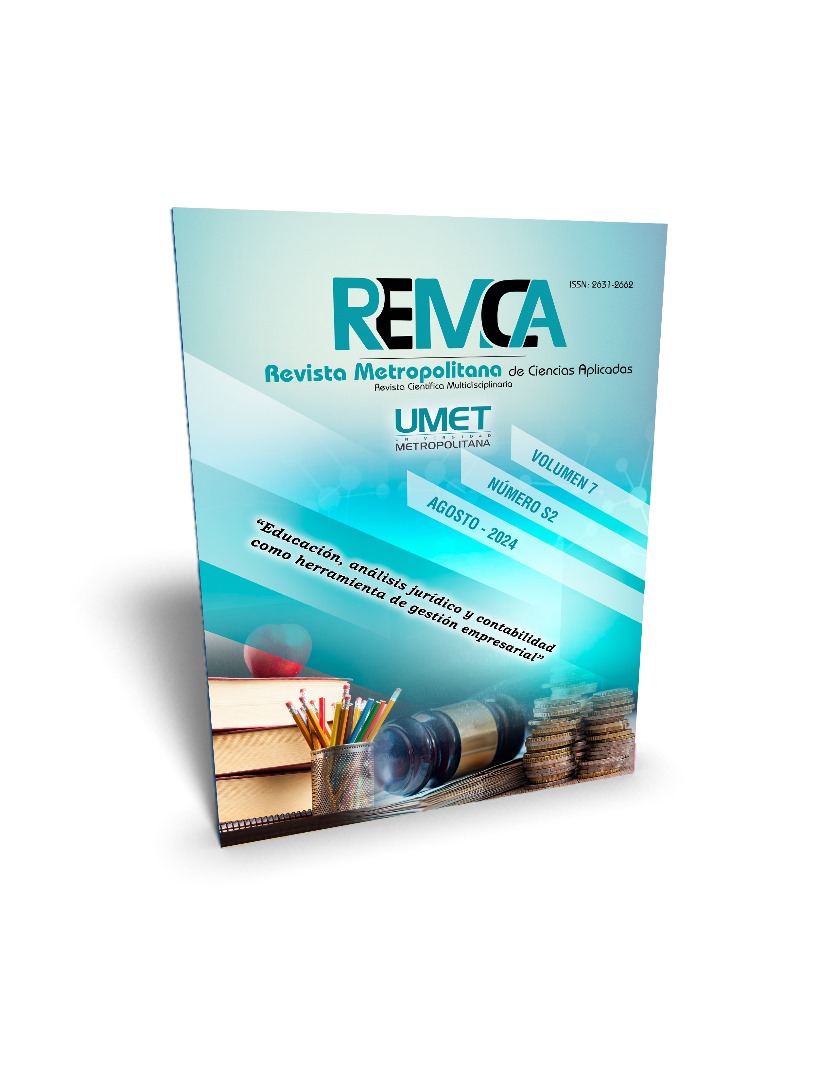Development of cognitive and social skills in young people with Down Syndrome for entering the workforce
DOI:
https://doi.org/10.62452/jsrm7g02Keywords:
Adolescents with Down syndrome, transition to adulthood, skills, social and labor inclusionAbstract
The present doctoral research work will consist of a conceptual analysis of what are the socio-labor skills and how they are learned in a standardized context in the educational environment. From the perspective of the paradigm of inclusivity, it is necessary to carry out a conceptual review from different fields such as education from the regulatory framework, the labor framework, and, finally, from the perspective of the transition to adult life. The objective of this research work is to determine which are the socio-labor skills that adolescents with Down Syndrome need for a correct process even in the labor field in Ecuador. This will allow the initiation of a planned path in the process of transition to adult life to achieve independence within the family nucleus and, of course, to encourage public programs that generate spaces for training and transition to adult life. To achieve this, it is necessary to carry out a bibliographic review of public policies of labor inclusiveness, inclusive education proposals for the labor environment, and the principles that support the paradigm of inclusiveness. To achieve the above, it is necessary to conduct a literature review on public policies of labor inclusiveness, inclusive education proposals for the workplace, and the principles underlying the paradigm of inclusiveness. For this, the qualitative methodology will be used, to first conduct a literature review of the international panorama on the socio-labor situation and the transition to adult life, to compare it with the national situation, and with this, to design a set of socio-labor skills that allow socio-labor inclusion and, therefore, transition to adult life for adolescents with Down syndrome.
Downloads
References
Arés, P. (2012). Abriendo las puertas a las familias del 2000. Editora Política.
Aritio, A. M. (2011). Salud familiar. Científico–Técnica.
Benedicto, J., Fernández de Mosteyrin, L., Gutiérrez Sastre, M., Martín Pérez, A., Martín Coppola, E., & MoránM. L. (2014). Transitar a la intemperie: jóvenes en busca de la integración Instituto de la juventud. https://www.injuve.es/sites/default/files/Transitar_a_la_intemperie.pdf
Carroll, A. B. (2015). Corporate Social Responsibility: The Central Role of Leadership in CSR. Business Horizons, 58(5), 535–544. https://www.terry.uga.edu/wp-content/uploads/Carroll.2015.pdf
Ecuador. Consejo Nacional para la Igualdad de Discapacidades. (2017). Informe de rendición de cuentas 2017. https://www.consejodiscapacidades.gob.ec/wp-content/uploads/downloads/2018/03/INFORME-DE-RENDICI%C3%93N-DE-CUENTAS-2017.pdf
Hernández Jaramillo, J. (2015). El costo social de la exclusión en el empleo basándose en la discapacidad. Red Revista Ciencias de la Salud, 3(1), 92-97. https://www.redalyc.org/pdf/562/56230112.pdf
Hernández, R., Fernández, C., & Baptista, P. (2017). Metodología de la investigación. Mc Graw-Hill.
Hodapp, R., Urbano, R., & So, S.(2006). Using an epidemiological approach to examine out comes affecting young children with Down syndrome and their families. Down Syndrome Research and Practice, 10(2), 83-93. https://pubmed.ncbi.nlm.nih.gov/16869366/
Instituto Mexicano de la Juventud. (2018). La importancia de las habilidades sociolaborales en la población joven. https://www.gob.mx/imjuve/articulos/la-importancia-de-las-habilidades-sociales-en-la-poblacion-joven
Martínez Rueda, N. (2012). Juventud y discapacidad. Programas y herramientas para facilitar la transición a la vida adulta. Ed. Mensajero.
Pasillera Andoain, F. J. (2014). Verdaderas oportunidades sociales y laborales en la sociedad del Siglo XXI. Ed. Mensajero.
Ruíz Bueno, A. (2018). La técnica de Focus Gropus: Elementos teóricos-prácticos. Alianza Editorial.
Sorin, M. (2009). Padres e hijos, ¿Amigos o Adversarios? Ciencias Sociales.
Vidal, R., Cornejo, C., & Arroyo, L. (2013). La inserción laboral de personas con discapacidad intelectual en Chile. Convergencia Educativa, (2), 93-102. https://revistace.ucm.cl/article/view/273
Downloads
Published
Issue
Section
License
Copyright (c) 2024 Oscar José Martín-Pinto (Autor/a)

This work is licensed under a Creative Commons Attribution-NonCommercial-ShareAlike 4.0 International License.
Authors who publish in Revista Metropolitana de Ciencias Aplicadas (REMCA), agree to the following terms:
1. Copyright
Authors retain unrestricted copyright to their work. Authors grant the journal the right of first publication. To this end, they assign the journal non-exclusive exploitation rights (reproduction, distribution, public communication, and transformation). Authors may enter into additional agreements for the non-exclusive distribution of the version of the work published in the journal, provided that acknowledgment of its initial publication in this journal is given.
© The authors.
2. License
The articles are published in the journal under the Creative Commons Attribution-NonCommercial-ShareAlike 4.0 International License (CC BY-NC-SA 4.0). The terms can be found at: https://creativecommons.org/licenses/by-nc-sa/4.0/deed.en
This license allows:
- Sharing: Copying and redistributing the material in any medium or format.
- Adapting: Remixing, transforming, and building upon the material.
Under the following terms:
- Attribution: You must give appropriate credit, provide a link to the license, and indicate if any changes were made. You may do this in any reasonable manner, but not in any way that suggests the licensor endorses or sponsors your use.
- NonCommercial: You may not use the material for commercial purposes.
- ShareAlike: If you remix, transform, or build upon the material, you must distribute your creation under the same license as the original work.
There are no additional restrictions. You may not apply legal terms or technological measures that legally restrict others from doing anything the license permits.




